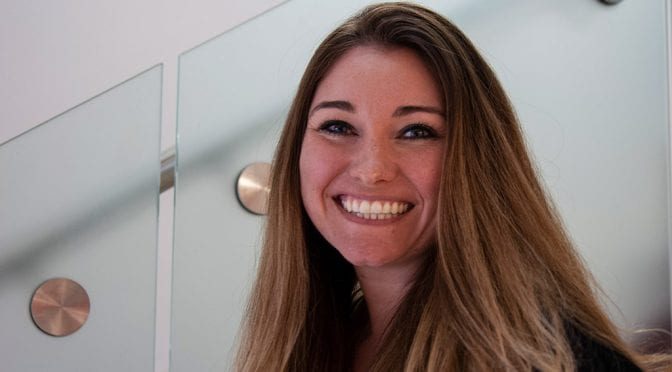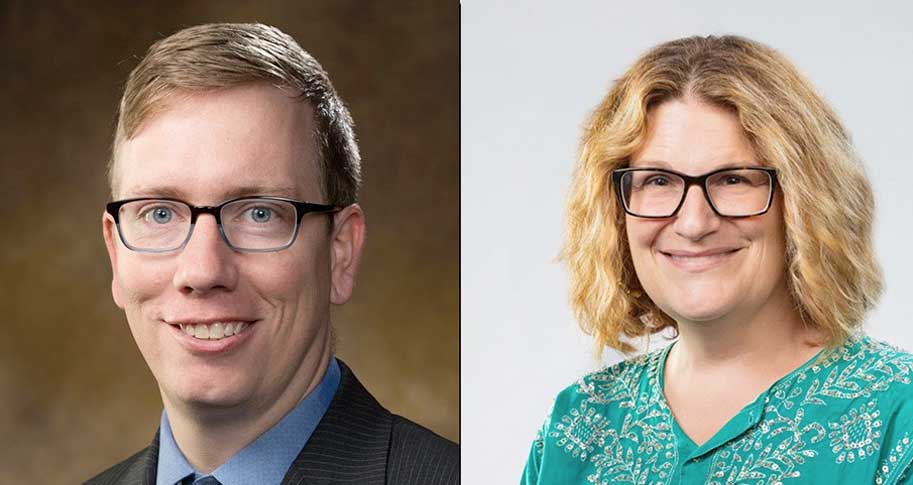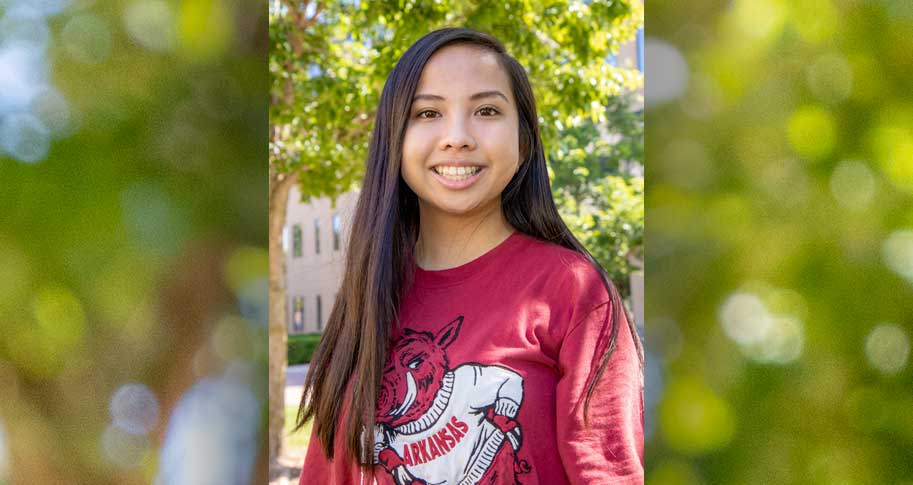
When Amber Young taught advanced calculus and physics classes to high school students in rural Oklahoma, they struggled to see systems of equations as 3D objects.
There simply wasn’t an easy way to demonstrate axis rotations and shapes on a blackboard.
To better help her students grasp the notion that systems of equations can have volume or surface area, Young adapted software to draw the three-dimensional objects represented in their textbooks as a list of equations.
It made a big difference. It also made Young think about the big picture. “I want to see how technology can be used for social good,” she says.
Now Young teaches at the Walton College as an information systems assistant professor, a position she began in August 2018. Before coming to the University of Arkansas, she worked as assistant professor at the University of Massachusetts Amherst.
Young teaches Business Information Systems and Business Project Development, the latter of which requires students to develop a system, she says.
Growing up in Shawnee, Oklahoma, Young earned a bachelor’s degree in secondary mathematics education from the University of Oklahoma. Right out of college, she launched a new satellite campus for the Oklahoma School of Science Mathematics. She quickly realized she needed business skills to run a school, so she worked toward an MBA from Oklahoma Christian University at night. Building on her emergent interests in business and technology, she later moved to Norman and earned a Ph.D. in management information systems at the University of Oklahoma.
Young was Assistant Professor of Operations and Information Management at UMass Amherst for three years until a faculty member from the University of Arkansas reached out to her about a position in the Walton College. She was not planning to move but could not seem to get the position out of her head. The information systems department has many top scholars and she knew working with them would be a wonderful career opportunity. She has not been disappointed.
“I love that it’s a large department and people come to campus,” she says. “Nobody is phoning it in.”
Young observed Walton’s faculty.
“They are very intelligent and hardworking,” she says. “They also care a lot about the students. They understand that students are a priority: that our research should benefit the students.”
Young is no different. She researches how digitization is changing how people work together. Recently, she has taken an interest in bots – an aspect of software that can execute commands, like reply to messages or perform routine tests with little human intervention. Young studies how bots change the way humans work together in open collaboration communities like Wikipedia. She also studies the effects human and bot interactions have on outcomes such as information quality and humans’ perceptions of dignity and autonomy. Bots, if overused, can harm the collaborative process through the loss of the unique contributions of human judgment and creativity.
Young also studies effects of digitization of public discourse. The structure of digital platforms, as well as content restrictions imposed by platform design, shape public discourse in systematic and predictable ways. For example, digital media allows for more democracy by allowing more people to have a voice but, just like traditional media, it’s also capable of drowning out unpopular voices, Young says.
The digitization of public discourse also introduces bots, which can make bias worse because bots are extreme and can’t reason, unlike people. Thus, when a bot adds bias to public discourse, it does so with consistency and breadth unmatched by humans, she says.
Her research has been published in premier outlets, including MIS Quarterly and Information Systems Journal.
Young continues to carry the torch that ignited when she was teaching high school. She is also thinking about what she hopes to accomplish at the University of Arkansas.
“I want to make an impact, to help people in my roles as a researcher and as a teacher.” she says.




